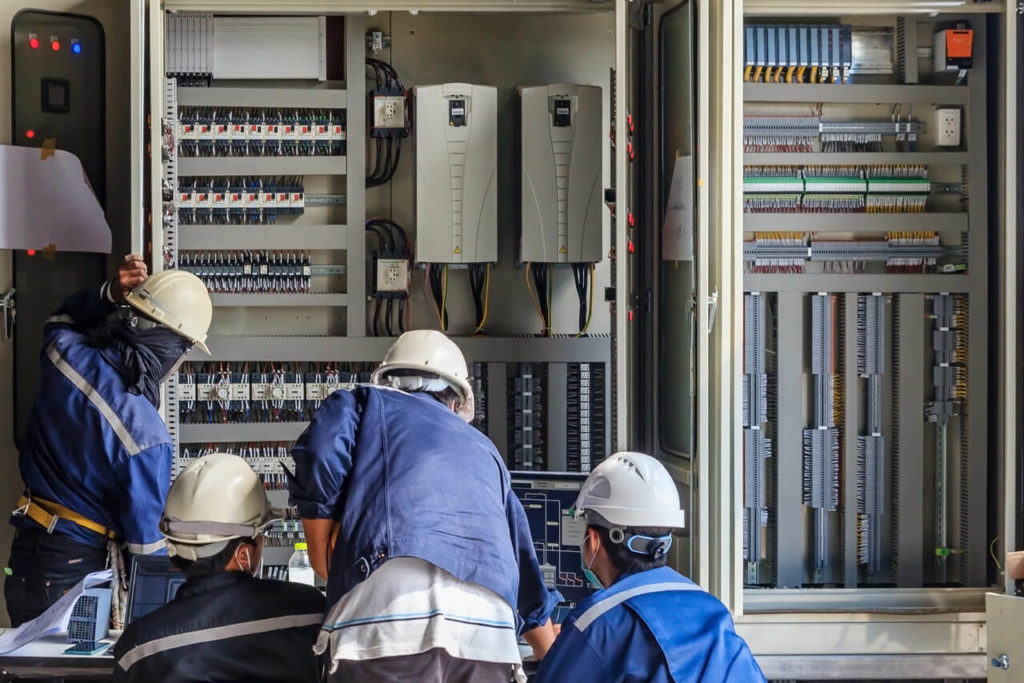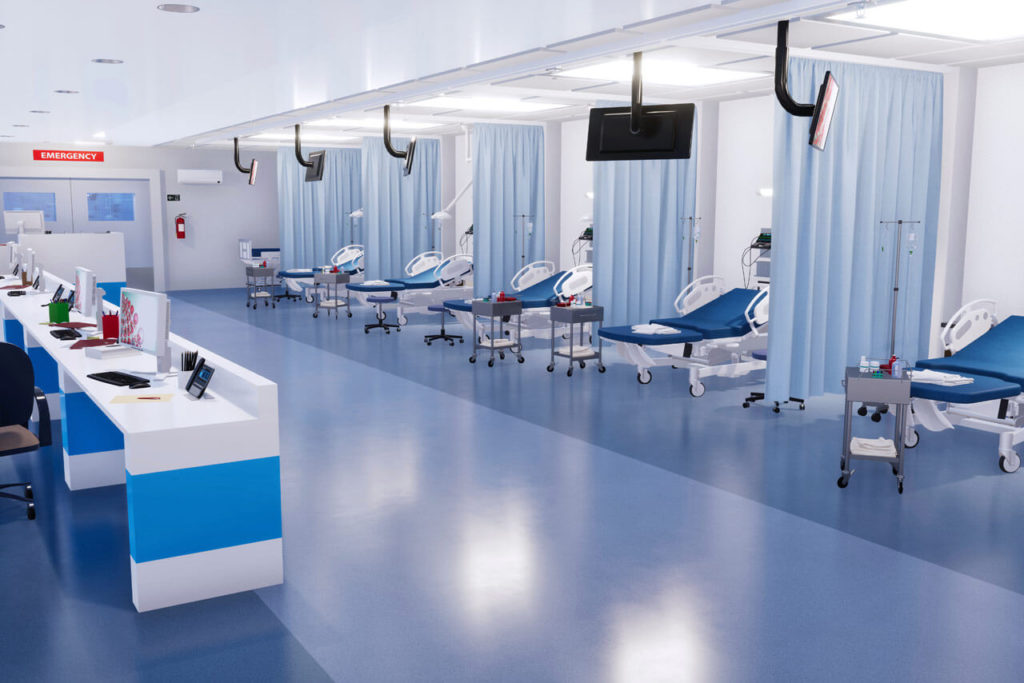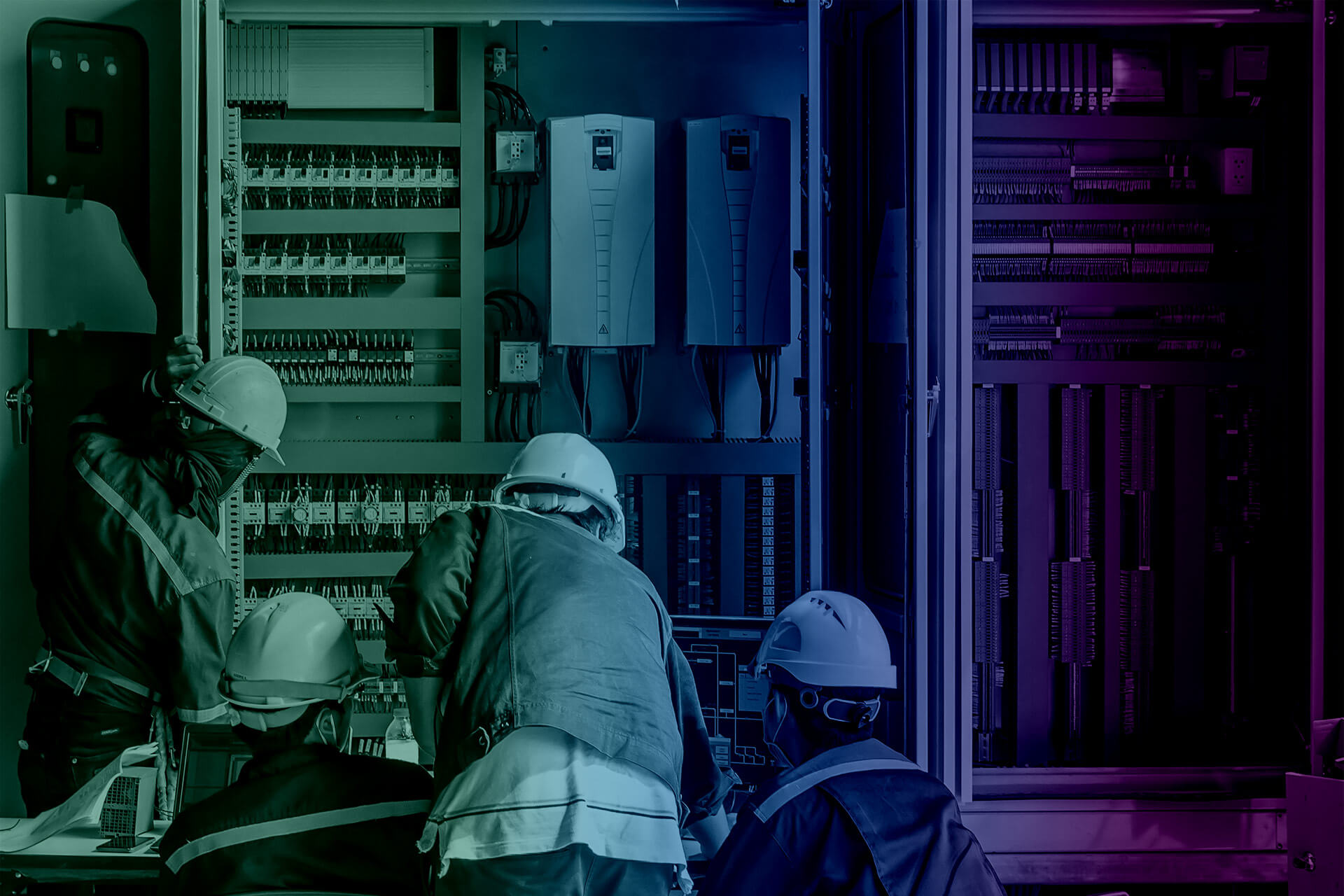A power outage is an unforeseen event that must be avoided in hospitals. In these environments, and especially in critical areas such as the Intensive Care Unit, power failure can put patients’ lives at risk. Therefore, as experts in electrical safety, in this article we want to address a series of requirements and recommendations for the management of the electrical system in hospitals.
We will also address the issue of hospital energy efficiency, which helps to improve the performance of medical equipment while reducing consumption and thus the environmental impact of hospitals.

One of the fundamental aspects for the proper functioning of any type of hospital facility is the management of the electrical system. This is an aspect that is highly regulated at the national and international level, so there are a series of requirements and regulations that health centers and hospitals must comply with in order to guarantee that hospital staff can work with all the guarantees and that patients are not at risk, especially in critical or emergency situations.
The institutions of the health sector, as we said, must achieve a series of requirements that are normally detailed in a safety and management program of the electrical system in hospitals. This program, developed by engineers and specialists, covers different areas of action:
- First, it is vitally important to carry out all kinds of inspections to test the correct operation of medical equipment in electrical systems. Once done, keep all the documentation on the tests and their results.
- The management of electrical safety is an aspect that must be assessed from the moment of purchase of the medical equipment. At that time you have to study all the standards and regulations in terms of purchases but also in relation to safety. It is also important to know the most recognized manufacturers and suppliers in the market. In this sense, hospital institutions may need the support of companies such as ETKHO, which offer advice and consulting in electrical management. On the other hand, it is recommended to test all new devices before installing them in and using them in the hospital.
- Train the human team in electrical safety, both with general instructions on common electrical devices and detailed training to know how to safely use those equipment that require more specific knowledge. It is important that this training is updated periodically to incorporate new experiences and knowledge.
- If an incident occurs, it will be necessary to carry out an entire investigation to discover the causes, detect possible dangers and find solutions so that it does not happen again and increase safety in the hospital. In this sense, when an electrical failure occurs, locating where it occurred in the shortest possible time is of great importance. For this, there are IT Power Supply Systems with the ability to immediately detect faults and facilitate, for example, that the system remains online if we are facing a simple incident.
Recommendations in electrical management in hospitals: basic measures

The main objective of electrical management in hospitals is clear and evident: to reduce the consequences that any failure in the hospital’s electrical and energy supply can cause. For this, at ETKHO we have several solutions such as, for example, uninterruptible power systems, specially designed for the most critical areas and which, in the event of a failure of the main power supply system, go into operation in less than 0.5 seconds.
A very important aspect in choosing the best hospital engineering solutions is to have a team of technical advisers and engineers who analyze the different types of electrical load available in the hospital. Thus, we can normally find two types of electric charge:
- Non-essential: they do not need any type of additional supply to function.
- Essentials: here we find the critical ones, which need instant connection; those powered by uninterruptible power supplies; those that incorporate batteries or those that are not critical and, therefore, do not need to be connected immediately.
As important as knowing the types of loads, it is also that the electrical distribution is carried out on a regular basis throughout the building. To do this, a plan for dividing the alternating current into two is designed:
- Electricity for equipment or equipment systems. Provides power for all hospital machinery that is vital for treating patients such as control systems, ventilation system, elevators, alarms, etc.
- Electricity for emergency systems. It consists of creating safety circuits thanks to which, in any critical or emergency situation, healthcare personnel can attend to patients.
Other basic elements for safety in the management of the electrical system of hospitals are:
- Transfer Items: Hospitals must have reliable electrical transfer switches. In other words, all emergency areas or zones, for example, should have individual switches for each piece of equipment in order to ensure an electrical transfer that allows healthcare personnel to work without problems. On the other hand, to monitor the insulation resistance of IT electrical systems there are insulation monitors.
- Safety wiring: Essential in all facilities where any type of patient care is carried out. In these cases, the safety cables must be independent in each equipment and connection. In addition, it must be located in different channels and remain isolated. That is, the cables that provide electrical power must not remain in contact with each other. In this area, it is worth highlighting the electrical outlet hospital panels, which help prevent contact voltages within the critical medical area.
- Emergency systems: It is vitally important that hospitals are prepared for any type of emergency. There are equipment and elements of hospital institutions that must continue to operate even in the event of power outages. In this sense, it is important to have, for example, exit signs, energy for alarm and alert systems, energy for blood banks, lighting for the location of generators, etc.
How to improve hospital energy efficiency?

As experts in consulting for electrical safety in hospitals, we have talked in this post about the basic aspects of managing the electrical system in hospitals. However, we also want to consider aspects related to energy efficiency.
An effective electrical and energy management in health institutions must be organized, structured and have the involvement of all the center’s staff. In this way, it will be possible to achieve energy efficiency in relation to the use and consumption of the electricity supply. It is necessary to make responsible use of electricity and reduce consumption without affecting productivity and quality from an operational and patient care point of view.
Among the measures that medical and hospital centers can implement to reduce their environmental impact and improve their energy efficiency, we find some basic measures:
- Controlar las condiciones térmicas naturales en el hospital.
- Revisar periódicamente las instalaciones eléctricas y los sistemas eléctricos así como realizar labores de mantenimiento.
- Usar luces de bajo consumo, especialmente recomendable usar LED.
- Activar la opción “ahorro de energía” en aquellos equipos médicos que dispongan de esta funcionalidad.
There are also other measures that require some investment from hospitals:
- Have windows and doors with thermal protection.
- Isolation of electricity plants.
- Keep the pipes in charge of the electrical supply clean.
- Reduce lighting and incorporate the use of electrical timers.
In some specific cases, it may be necessary to take security measures that require more investment since it implies carrying out works or reconstruction of certain spaces:
- Insulate floors, ceilings and walls.
- Install hot water networks for shower areas.
- Improve the quality of electrical energy.
- Using solar energy for energy production.
In short, the management of the electrical system in hospitals is not a trivial matter. It requires knowledge, experience and having the best advisers and the best equipment and technological solutions to guarantee the proper functioning of the hospital institution and the safety and care of the patient.



